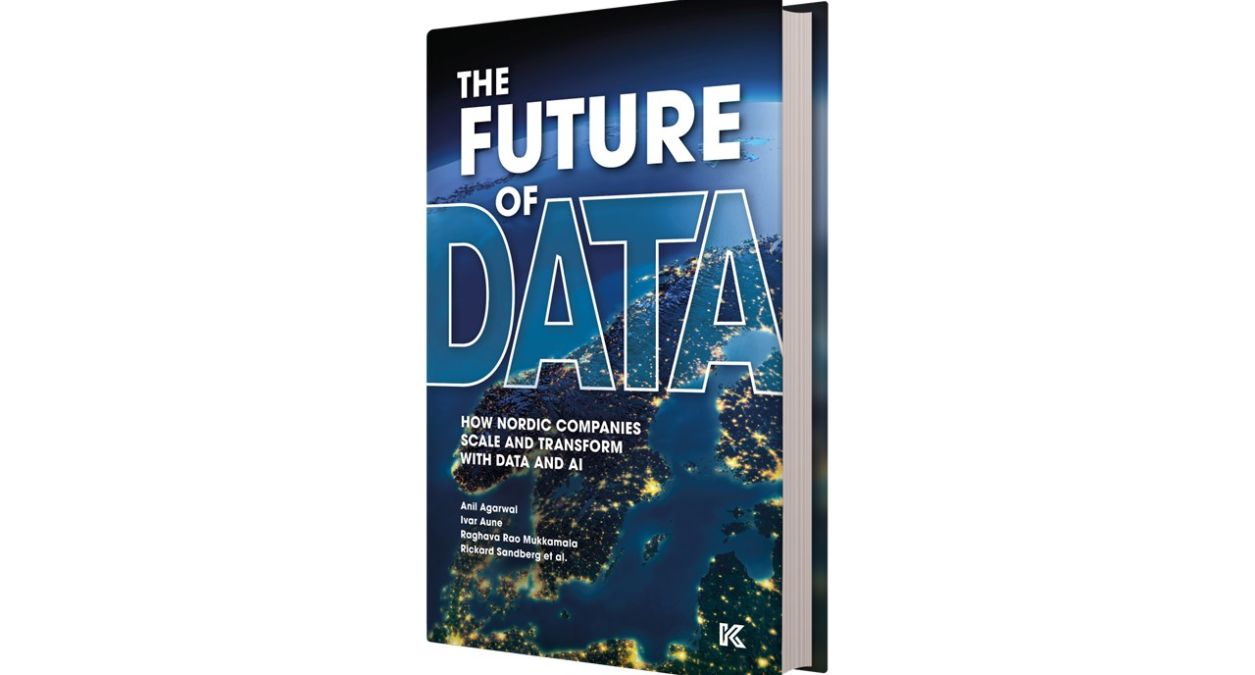Telia in new book describing the future of data
Insights from constantly growing data volumes is now such a foundational part of any organization that we’re at the point where businesses and organizations must learn how to manage data at scale. In a new book by one of the world-leading consultancy and digital transformation firms, Cap Gemini, and renowned academic institutions, Stockholm School of Economics and Copenhagen Business School, Telia’s data expert Kristofer Ågren and other pioneers talk about what it takes to get there.
“The next step will be all about insights,” Kristofer Ågren says. “To go from data to use case specific insights, you will need great partners, market access and domain expertise. Doing this at scale requires a strong focus on automation and with the customer experience front and center."
In the book, The Future of Data, the authors describe today’s business environment as both more competitive and more uncertain than ever. But new, digitally mature and data-driven businesses have a competitive edge as they “have data in their DNA, letting them, almost to perfection, realize and monetize the value of data and leverage data-powered insights at scale to outperform their competitors”.
Data has certainly ended the guessing game and unleashed completely new insights for many organizations, and while a popular catch phrase of “data is the new oil” has circled around for years, Google’s CFO said at the World Economic Forum in 2021 that “data is more like sunshine than oil”.
But there are challenges, of course, and those explored in the book include the vast amount of data that most organizations are facing. According to the World Economic Forum, by 2025, the amount of data produced per day will be 463 exabytes. That’s to be compared to 2009, when the world’s entire digital storage capacity was 487 exabytes.
Furthermore, the authors state that the return on investments in data can be hard to calculate and that businesses and organizations must learn to combine many kinds of data, such as internal, external and research data.
At Telia, Kristofer Ågren and his team of data scientists, analysts and business developers, employs anonymized and aggregated data from mobile networks to generate statistics on how groups of people move in society, providing valuable insights for businesses and authorities who need data to optimize things like urban development, public transportation, tourism and retail, leading to savings and an improved experience for citizens and customers.
The authors of The Future of Data describe the same benefits: organizations using data can achieve a higher topline growth, increase efficiency and higher productivity – a 17 percent higher profit per employee –, higher customer satisfaction and talent retention.
To illustrate, Kristofer Ågren describes how Telia develops products and services based on data insights.
“When we have demonstrated the market potential, the product is developed through quick-release cycles – Minimum Viable Products (MVPs) with the ability to scale. In this phase we closely monitor and measure several factors, such as the onboarding experience, quality, scalability and so on. Our anonymized statistics are extrapolated to be representative of the full population of each country.
“We can then deliver these statistics continuously to hundreds of customers across the Nordics and Baltics. Our Telia Crowd Insights portfolio can also be complemented with location-based data sets with data from sensors or IoT devices.”
Telia does this in collaborations with partners.
“We have the deepest respect for the domain experts and for the need to add secondary data sets and domain expertise. This can, for example, be qualitative data, travel surveys, Google Maps data, congestion information or travel timetables. After the partners are in place and the products become more complex, the need to expand from individual partners into a full-scale ecosystem emerges.
“I really hope telecom operators can play a larger role to help companies and societies become more sustainable. For this to happen, many different data sources are needed, and true insights only come when domain expertise is applied as well. Telcos could help facilitate and scale this. We do some of this already today, for example, by providing energy optimization for buildings together with our partners and our data and IoT solutions.”
The Future of Data also contains a hands-on roadmap for organizations who have not yet fully embraced the data era. It was released in March 2023, and is available in several bookstores and online.
You can find out more and download the first chapter here.
Cookie notification
Cookies allow us to optimize your use of our website. We also use third-parties cookies for advertising and analytics. Please read our Cookie Policy for more information.

